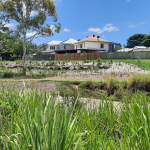Upcoming Events
Time : 5:30pm registration, 6pm start, 8pm finish
Queensland has recently introduced the single use plastic bag ban and is working towards a Container Recycling Scheme later this year. This has come about from the extensive research into the impact that plastics are having on our oceans. However, aside from the vision of turtles swimming in oceans of plastic bags and dead whales with plastic filling their gut, what is the science behind the news items? Is it as big an issue as the sensational headlines make out?
Come and hear from Professor Kevin Thomas (UQ Queensland Alliance for Environmental Health Sciences (QAEHS), about the latest advancements in microplastics measurement and management challenges. Then learn from Colin Hester (Queensland Urban Utilities) on the logistics of managing a waste stream with microplastics within it.
Light refreshments & finger food included
Facilitated by Tony Weber from Stormwater Queensland.
Hydrologic changes from urbanisation are one of the key stressors on local waterways, perhaps having a greater impact than water quality changes. There has been a lot of research across Australia into these hydrologic impacts, but there is very little guidance on how best to manage hydrologic changes and the right targets that can be applied through a development assessment process.
In this workshop, we will present some of the latest research in hydrologic impacts and debate the possibility of new targets and methods by which to assess them. This will be an interactive workshop, where we generate ideas and approaches that can be put back to regulators on how best to implement better management of urban hydrology for stream health.
Workshop (includes Awards Dinner) Tickets
Members: $230.00 (inc. GST)
Non-Members: $290.00 (inc. GST)
Non-members are encouraged to join to gain advantage of this event and many other high quality events planned for the year.
Awards Dinner Tickets
Members: $100.00 (inc. GST)
Non-Members: $155.00 (inc. GST)
For entry submissions see below;
Joint event between;
Stormwater Queensland & Engineers Australia, Queensland Division, Water Panel
Date: Thursday 6th September, 2018
Time: 1pm – 5pm (Registration opens 12.30pm)
Location: Hawken Auditorium, Engineering House
Flood Forecasting requires underlying systems and techniques that has applications within various parts of the water industry. While the Bureau of Meteorology is the official flood forecasting agency, they work in close co-operation with related agencies who manage emergency response and/or water resources. This requires systems that take in real-time data and provide robust and quality controlled data to decision makers. Flood forecasting systems are a rapidly advancing, highly innovative field solving unique problems.
This event will provide a range of presenters from the industry including:
- Seqwater (Lindsay Millard)
- Bureau of Meteorology (Sue Oates & Jonty Hall)
- Ipswich City Council (Adam Berry & Matthew Pinder)
- Water Technology (Alister Daly)
The event will highlight and showcase how some of the different forecasting systems across organisations are being used and their linkages. You will get to see firsthand how different authorities respond to actual flood events and how they work together in Qld – it is a peek into something quite unique and exciting. A range of different forecasting and meteorological products ranging from basic to complex will also be demonstrated within multiple flood forecasting systems.
BoM will provide a presentation on their new, current and future products. This presentation will include information on their HyFS [Delft-FEWS] system and a general overview on the development phase STEPS and Rainfields products and how these have been incorporated into a trial flash flood forecasting system at Ipswich City Council. Furthermore, an insight into how an Emergency Management Response team would utilise some of this data in an actual flood event will be provided
Seqwater will demonstrate the real-time data exchange between the modelling systems occurring between BoM’s HyFS and SeqFEWS [Delft-FEWS flood warning systems. The quality control of the rain and flow gauge datafeeds that inform the models will also be presented.
A method in which radar rainfall is utilised by flood modellers will also be showcased in an example of how to calibrate flood events using a radar rainfall calibration approach.
This promises to be an event full of new information, practice and innovation in an emerging and exciting space in floodplain management.
Event facilitated by Daniel Niven (Engineers Australia Water Panel and Stormwater Qld Committee Member)
Like all infrastructure, stormwater control measures (SCMs) and other Water Sensitive Urban Design (WSUD) assets require appropriate maintenance to ensure they are achieving their original purpose. It is subsequently recognised that the operation and maintenance of SCM and other WSUD assets require significant and appropriate resources to ensure their appropriate function. However, anecdotal and published information indicates that these assets are often not being appropriately maintained and are subsequently often not achieving their design objectives. ‘Stormwater utilities’ have been proposed as one solution to provide a stable funding source for stormwater management.
Our upcoming workshop will be a chance to describe and discuss the current status of SCM management in QLD (for both privately and publicly owned assets), and describe/ discuss the potential option for future ‘stormwater utilities’.
The format will include short presentations from an Expert Panel followed by an interactive discussion between the audience and panel. Come along, be involved and debate the many competing issues. A complex challenge that requires broad discussion to provide direction and lead our thinking on this critical topic – don’t miss your chance to contribute in this important area.
Confirmed Expert Panel Members include:
- Jonathon Whitcombe (Moreton Bay Regional Council)
- Andy Hornbuckle (SPEL Environmental)
- Charles Coathup (Renew Solutions)
- Stephen Turfrey (Redlands Shire Council)
Cost:
- Members and students: $65/ person (incl. GST)
- Non-members: $100/ person (incl. GST)

Stormwater Queensland will hold its Annual General Meeting (AGM) on;
Thursday 25 October 2018 at 1pm at AECOM, Level 8, 540 Wickham St, Fortitude Valley, QLD.
The AGM papers can be downloaded here;
If you are not able to attend the AGM, please exercise your voting rights by returning the completed Proxy Form.
Members are invited to consider nominating for a position on the Stormwater Queensland 2018-2019 Management Committee. Stormwater Queensland are seeking committee members that are eager and enthusiastic to advance the stormwater industry and who want to play an active role in setting the direction of the Association and its activities. Participation on the Committee is also of personal benefit, providing professional development and networking opportunities. The nomination form is attached – please be sure to include a 100 word professional profile and statement on what you believe you can add to the committee. Note: Nominations close Thursday, 11 October 2018 at 1pm.
If you have any questions, please don’t hesitate to contact the Stormwater Queensland Secretariat contacts.
Stormwater Qld is facilitating an opportunity for The Department of Environment and Science to provide a summary of the:
As these guidelines have not been endorsed by Stormwater Queensland we are facilitating this event as a way to allow our members and others to provide feedback to the state on both guidelines. We believe that strategic overview and direction of important issues require feedback to help improvements in this space. Because of this, SQ is providing this event free of charge as we really need our industry to voice their opinions and share their knowledge. Date: Wed 6 March 3:30-5pm Where: Department of Environment and Science 400 George Street Brisbane Qld 4000 No catering provided |
After five years of consultation, collaboration and negotiation, Stormwater Australia released the SQIDEP document in December 2018. The document provides a uniform set of criteria to which all stormwater treatment measures (green & grey) can be field-tested and reported. These criteria should guide and inform field monitoring programs that seek to demonstrate pollutant removals for treatment measures implemented to achieve planning water quality objectives.
This SQ event will be facilitated by Sally Boer, Director, E2Designlab, and include an expanded list of speakers. Alan Hoban, Director, Bligh Tanner, will present on the consultation process and development of the SQIDEP and future. This will be followed by a presentation from Darren Drapper, Principal, Drapper Environmental Consultants, on the SQIDEP technical content and practical implementation. Following these two presentations a panel of speakers will each provide a short summary of their thoughts on the SQIDEP. The panel will comprise: Andy Hornbuckle, SPEL Environmental; Mike Wicks, Stormwater360; Charles Kelly, Humes; Stephen Baker, Rocla; and Andew Macklin, Urban Asset Solutions. Following the panel discussion, you’ll have an opportunity to ask your questions about this important industry benchmark.
Don’t miss this chance to be at the leading edge of this significant step-change in our industry. Following the workshop, there will be an opportunity for networking and further informal discussions over drinks and canapés with industry colleagues.
If you are not currently a Stormwater Queensland member, apply to join today and attend this event at the dicounted member rates. Apply here
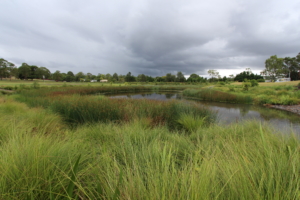
The Wetland Training course will provide an introduction to the field of wetland design for stormwater and wastewater treatment with the main themes covered including:
- An introduction to the science of wetlands and constructed wetland types
- Pollutant removal mechanisms within treatment wetlands
- Pro and cons of wetlands for differing effluent types – key things to consider or look for in a wetland design
- Design steps including relevant technical guidance
- Construction and establishment of natural systems
- A new challenge: broad scale wetlands – an application for rehabilitating landscapes and environmental offsets
The training will be supported by a selection of case studies and will have an emphasis on wetland design in the Queensland policy context. At the end of the training, participants will have a greater understanding of wetland function, the use and limitations of wetland systems and a collection of resources and materials for designing and assessing wetlands and other biological systems.
Speakers:
Damian McCann & Dr Mark Bayley, Co-Directors of Australian Wetland Consulting.
Damian is a Wetland Ecologist with over 15 years experience in the design, construction and management of wetland systems for a range of applications. Mark and has completed many projects which have involved the use of constructed wetlands for polluted water treatment, habitat creation and groundwater management.
Join Stormwater Queensland and event partners Citygreen as we discuss how Street Trees can enhance the liveability of a city and the key considerations to factor into design, application and ongoing management.
Comprising keynote presentations from leading experts, this session is an invaluable opportunity to further your knowledge and skills.
Sessions include:
Street trees changing role in the liveable city Lyndal Plant, Urban Forester
- Street trees as multifunctional green infrastructure
- Local government directions e.g. prioritising greening/cooling, canopy cover targets, urban forest resilience planning
Design requirements for optimum tree growth – Ben Gooden, Citygreen
- Target shade cover and asset values, against projected time scales, enabled by correct soil volumes/spec, water balance and species selection
- Soils Under Pavements Trials at Bartlett Labs, Charlotte NC, USA
Modelling passively irrigated trees – hydrology and pollutant removal – Sally Boer, E2Designlab
- How to model passively irrigated trees in MUSIC
- Applying the sizing guides: retrofit and greenfield case studies
Observations of the design and performance of passively irrigated street trees – Tim Davies, Environmental Engineer
- Observations and lessons learnt from different designs of passively irrigated street trees without underdrainage.
- Summary of programs including design considerations, monitoring and costs.
Event Partner

At Citygreen, we love trees. In fact, we think they hold the key to better cities – and a better world. Informed by years of comprehensive research and development, our urban landscape solutions offer the very best in cutting-edge technical design. Not only are they the strongest available by far, our structural modules are also the greenest – made from 100% recycled plastic – evidence of our commitment to the environment.
We want sustainable green space to be within reach of every person, every day – and we’re on a mission to make it happen. We hope you’ll join us on the journey.
Speakers
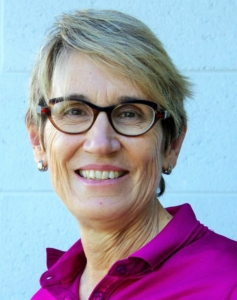
Dr. Lyndal Plant is an urban forester who has worked in local government policy and strategic planning for urban trees, including many years with Brisbane City Council. A Churchill Fellow, member of TREENET management committee and now a published researcher and consultant, Lyndal has helped advance urban forest evidence gathering techniques and make stronger business cases for investment in green infrastructure. Lyndal now focuses on policy development/review and cutting-edge urban forest initiatives. She sees the forest, not just the trees – helps plan and monitor outcomes, not just outputs and is committed to greener, cooler neighbourhoods for all.
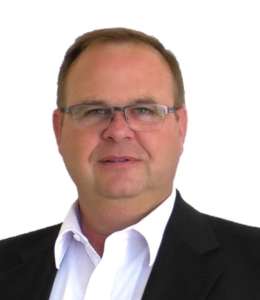
Ben Gooden is the CEO of Citygreen – innovating with sustainable urban landscape solutions, including tree vault systems, water harvesting and aeration systems, for enabling faster canopy growth. Working with most major cities in Australasia, USA and Canada, and property developers.
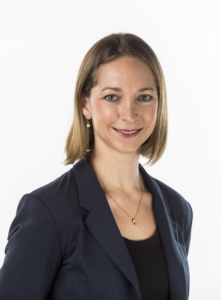
Sally Boer is a founding Director of E2Designlab. Her professional career has been devoted to using science to guide strategic planning and design to inform decisions that shape the creation of healthy and sustainable cities. With a background in freshwater ecology and over a decade of working with developers and local government authorities in urban water management, Sally understands the drivers and sometimes competing interests shaping on-ground outcomes. She has contributed to advancements in passive irrigation approaches and has helped successfully deliver the first large scale open space turf wicking bed in Gladstone and more recently a wicking lawn and self-watering tree for Innovation House 2.0. She also led the tree pit soil moisture modelling for Healthy Land and Water which has provided passively irrigated tree pit design guidance for six climatic zones across Queensland.

Tim Davies is an Environmental Engineer with a passion for creating resilient and regenerative landscapes. Through coupling whole systems thinking with a creative edge, he aims to be a driver of innovation and integration. Tim enjoys working at multiple scales from strategic planning to design to practical hands on landscaping and gardening.
Tim’s experience has given him a deep understanding of the planning, design, maintenance and operational aspects of Water Sensitive Urban Design. Recently, he’s been involved with several projects trialling the use of passively irrigated street trees and the rectification of bio-retention systems to reduce maintenance, improve public engagement and vegetation resilience.












